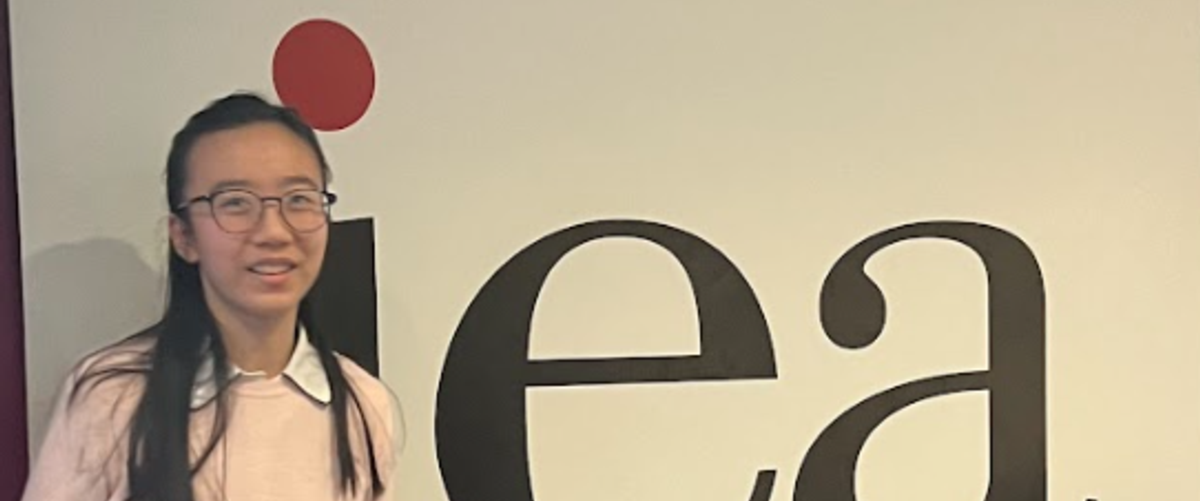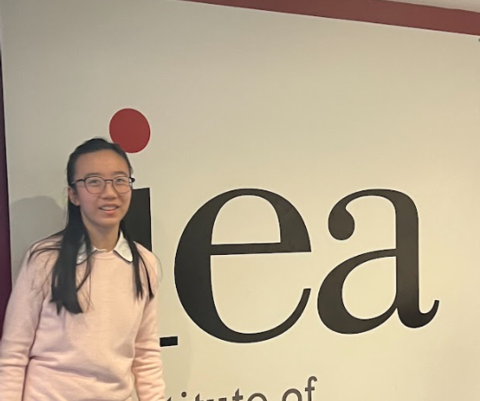Over the Easter Holidays, Rachel participated in a programme at the Institute of Economic Affairs (IEA) think tank which involved attending lectures and discussing and debating ideas. She tells us about her experience and what she learnt.
“Over Easter, I participated in a programme that has been conducted since 2017 by IEA, a think tank. Throughout the week, the staff from IEA gave us lectures on a large range of economic and political topics and we discussed and debated ideas.
The week started with us getting to know the other students that we would work with during the week, and then we are put into groups for the final debate. The debate topics covered from whether a universal basic income should be implemented to if governments should adopt industrial policies. For our group, we were debating whether kidney sales should be allowed. Following the introduction, we were given ideas on how a think tank works and what is it like to work there. In addition, there were also some icebreakers when we could chat with the other students about things that interested us.
The remaining week consisted of a wide range of lectures from the experts at the IEA. From socialism to complementary politics, or a free market approach to climate change to free trade. After each talk, there could be as much as 30 minutes of discussions and Q&As for us to challenge the arguments made by the lecturers.
Out of all those talks, the one that I found most interesting was a talk on football, especially in the UK. Dr Steve Davies explained the problem with football in the UK and why it isn’t as profitable as American sports, that the expense is often higher than the revenue generated. He added that in UK, there is a strong correlation between expense and team performance. While the reason is actually that higher expenses lead to better salaries to attract the best players, teams often ignore the actual reason, thinking that, in order to win, they need to put a higher wage on even those who underperform, causing an arms race. While this happens in the UK, the same situation doesn’t apply to the US.
The key reason is actually because of historical reasons. As the sports leagues in America were formed before the teams were all formed the league has a much higher power to enforce rules on teams such as salary caps and drafts. However, in the UK, the teams existed earlier than the league which was formed by teams. Therefore, enforcing rules is difficult, as it requires collaboration as every team will be better off to cheat, whether the other teams cheated or not. Using a simple classic Prisoners’ dilemma model, the problem was be explained vividly so that everyone could understand. Finally, he mentioned that the only way to solve this is to set a really high cost or benefit such that the teams will be forced to follow the rules.
The last day was when the debates took place. Each debate lasted about 12 minutes and there was a vote from other students to see which team made a more convincing argument. For our group, we argued that the kidney trade couldn’t effectively eliminate the black market by showing statistics from Iran, the only country legalizing the kidney sale. We showed case studies where children were kidnapped for their kidney there. After the debate, Dr Steve Davies commented on the debate and gave out awards.
It was a really memorable and unique experience. Each day I was lectured by experts from different fields on interesting topics which I enjoy even now looking back.”


